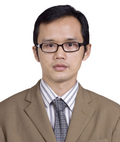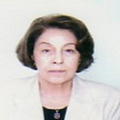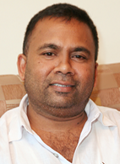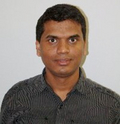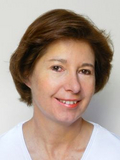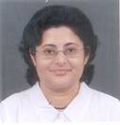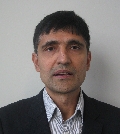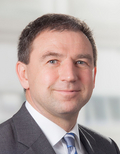Scientific & Technical Advisory Group
Our thanks to all the members of the IDRC Davos Scientific and Technical Advisory Group. Your valuable support and your expertise help ensure the high-quality level of IDRC Davos Conferences.
Trias Aditya
Associate Professor in the Department of Geodetic Engineering, Facultyof Engineering, UGM, Indonesia
Dr. Trias Aditya teaches and supervises students’ research in the topics of Computer Graphics, Cartography and Geovisualization, Spatial Databases, Internet GIS, Spatial Data Infrastruture, and Design and Management of Spatial Information. His latest research work include the use of participatory maps for assessing needs and losses in disaster emergency; also on the topic of collaborative large-scale mapping for developing community-based spatial plans in disaster impacted areas.
David Alexander
Professor, UCL Institute for Risk and Disaster Reduction, University College London, UK
David Alexander is Professor of Risk and Disaster Reduction at University College London. His books include "Natural Disasters", "Confronting Catastrophe", "Principles of Emergency Planning and Management", "Recovery from Disaster" (with Ian Davis) and "How to Write an Emergency Plan". He is Editor-in-Chief of the International Journal of Disaster Risk Reduction.
His research and teaching interests include natural hazards, earthquake disasters, culture and disasters, and emergency planning and management. David Alexander is Vice-President of the Institute of Civil Protection and Emergency Management.
Tahmeed M. Al-Hussaini
Professor, Department of Civil Engineering, Bangladesh University of Engineering & Technology (BUET), Dhaka, Bangladesh
Dr. Tahmeed M. Al-Hussaini, Professor of Civil Engineering at Bangladesh University of Engineering and Technology (BUET) had his engineering education in Bangladesh (BUET), Thailand (AIT) and USA (SUNY-Buffalo). He was a visiting research scientist at ECP, France and visiting Associate at ICTP, Italy. His field of interest encompasses geotechnical and earthquake engineering, seismic hazard assessment, soil-structural dynamics and disaster mitigation. He is the vice -president of Bangladesh Earthquake Society since 2008. He is currently responsible for revising earthquake resistant design provisions of the Bangladesh national building code.
Khedidja Allia
Chemical Engineering Professor and research director at the University of Sciences and Technology (USTHB), Algiers, Algeria
Khedidja Allia holds engineer diploma and Doctorate Es Science in Chemical Engineering at National Polytechnic School, Algiers (ENP) and part at Thames Polytechnic – London-UK. She is engaged in the supervision of students at different levels (Doctorates, Magisters, masters), and lectured at the USTHB (Algiers). She is also interested and implicated by the teaching of ethics in engineering. Pr Khedidja Allia published several scientific works in the fields of chemical and environmental engineering (Multiphase flow, Pneumatic conveying, fluidization, semi fluidization and wastewater treatment, solid wastes…..), and has been and is involved with a number of research projects. She occupied several posts as; Director of Higher Education (MESRS), Director of Industrial chemistry institute USTHB and President of Scientific Committee - Industrial Chemistry institute, Head of Chemical Engineering Department at the National Polytechnic school of Algiers (E.N.P), and Researcher at Research and Development Direction at SONATRACH. She took part at many commissions on the higher education reforms, and she was the National Coordinator of « the higher education Commission (Technology) of “Maghreb Equivalence”, and president of PURAQ (Pôle Universitaire et de recherché Algéro-Québécois). Fulbright Researcher at Mechanical department and Aerospace Engineering at CORNELL University, ITHACA, New .York, USA. She is an UNESCO Expert and is national research expert.

Ali Ardalan
Director of Disaster and Emergency Health Academy at Tehran University of Medical Sciences
Ali Ardalan MD, PhD, is a pioneer in disaster risk management in Iran and the MENA region who was the driving force behind the creation of MPH and PhD training programs in disaster health studies. He is an Associate Professor and Director of Disaster and Emergency Health Academy at Tehran University of Medical Sciences, an Adviser to Deputy Minister of Health, and Director of Disaster Risk Management Office at I.R.Iran Ministry of Health and Medical Education. He is also a Non-UN member of the United Nations' Disaster Management Team in Iran. Dr. Ardalan serves WHO/EMR as a temporary adviser, and collaborates with WHO/Geneva on advocacy of "disaster risk reduction for health" and "hospitals safe from disasters" in line with post-2015 framework for DRR. Since 2012, he is a Visiting Scientist at Department of Global Health and Population at Harvard School of Public Health, and a Senior Fellow at Harvard Humanitarian Initiative. Dr. Ardalan is an International Board of Global Network of Disaster Reduction (GNDR) where he represents the Central Asia region. He was a nominee for the 2015 UN Sasakawa Award. Dr. Ardalan is author and co-author of over 70 articles in English and Persian peer reviewed journals and has contributed in 2009 UNISDR Global Assessment Report, and 2013 IFRC World Disasters Report. He was a guest researcher at the Karolinska Institute, and remains an active contributor to the Disaster Supercourse based in Pittsburgh University.
Ali Asgary
Associate Professor and Undergraduate Program Coordinator, BDEM, Disaster and Emergency Management Program, York University, Toronto, Canada
Dr. Ali Asgary is an associate professor of disaster and emergency management at York University, Toronto, Canada. He is an expert in disaster and emergency simulation, business continuity and disaster recovery and reconstruction. He is co-leading a number of large research project and initiatives including Advanced Disaster, Emergency and Rapid Response Simulation (ADERSIM) at York University. He has received a number of awards most recently the York University Research Leadership recognition.
Christoph Aubrecht
Christoph Aubrecht’s research activities focus on integrated analysis of geospatial information on varying scales, including multi-dimensional spatio-temporal modeling to demonstrate the importance of scale and thematic context in disaster risk research by addressing geospatial aspects of population exposure and social vulnerability. In addition to AIT, he is also involved with the World Bank’s LAC-DRM team and previously provided consultancy to GFDRR; several visiting research stays at NOAA-NGDC, Columbia University-CIESIN and NASA-SEDAC, and the University of Southern California.

Samira Barghouti
Independent Researcher and Writer, California, USA
Born in Palestine 1959, B.Sc. from Birzeit University in 1982, and Ph.D. from the USA in 1991. Research interests are in renewable energy and physical neurochemistry. 2007-2011, served as a Professor and Dean of Research & Cooperation at AlQuds University, Jerusalem-Palestine. 1991-2007, served at many universities in the USA and the ME. 2003-2007, served as Dean of Scientific Research and Professor of chemistry at the Arab American University-Jenin. 2003, DAAD visiting researcher-Germany. Her many publications span fields of chemical education, neurochemistry and environmental chemistry.
Currently residing in the USA and working on two manuscripts; 1) Global Passport and 2) Inside Higher Education in occupied Palestine. In 2014 she founded the charity organization Global Liberation and Unification Efforts-GLUE and is currently at the fundraising state for supporting projects geared towards educating a global citizen.

Bockline Omedo Bebe
Professor of Livestock Production Systems, Egerton University, Egerton, Kenya
Bebe is a professor of Livestock Production Systems at Egerton University in Kenya where he holds the position of Deputy Director of Extension and Outreach. His expertise is in Sustainable management of livestock systems; Modelling behaviour of livestock systems in response to interventions, adaptation to and mitigation of changing climate; Agricultural innovation systems, Analysis and formulation of livestock development policies and Curriculum development for Higher Education. Bebe has research interests in the application and beneficial effects of climate smart agricultural practices in smallholder, pastoral and commercial livestock systems.
Per Becker
Associate Professor, Centre for Societal Resilience, Lund University Centre for Risk Assessment and Management (LUCRAM), Lund, Sweden
Per Becker is Associate Professor/Reader in Risk and Safety with focus on societal resilience and sustainability. He has combined research with a career in humanitarian assistance and international development cooperation focused on disaster risk reduction and climate change adaptation. Per’s research interests focus on the interactions between the physical environment, social organisation and social behaviour in relation to societal safety and sustainability. Especially on issues of risk and vulnerability, on what makes society resilient to disturbances, disruptions and disasters, and on capacity development as an intentional process for increasing such resilience.
Djillali Benouar
University of Science and Technology Houari Boumediene, Bab Ezzouar, Algeria
Djillali Benouar is a professor in Earthquake Engineering at the University of Science and Technology Houari Boumediene, and is Director of the Built Environment Research Lab. He has a degree in Civil Engineering from the University of Algiers, a master’s in Earthquake Engineering at Stanford, a Ph.D. degree in Engineering Seismology at Imperial College, and his post-doc was at the Institute of Industrial Science, University of Tokyo. He is an associate member of the Third World Academy of Science and is Senior Associate to the International Centre for Theoretical Physics. He is also a consultant for the World Bank, UNESCO, IIED, UN/ISDR, and ALECSO (Arab League). In 2005 he received the UNESCO-GADR award for Disaster Risk Reduction.

Joern Birkmann
Director, Institute of Spatial and Regional Planning, University of Stuttgart, Stuttgart, Germany
Prof. Dr. Joern Birkmann, is the Director of the Institute of Spatial and Regional Planning, University of Stuttgart. He is member of the Scientific Committee of IRDR (Integrated Research on Disaster Risk) and was Lead author for the IPCC AR5 and the IPCC special report SREX. He is also member of the Academy of Spatial Planning (ARL) in Germany. His research focuses particularly on vulnerability assessment, risk management, urban resilience and adaptive planning.

Stefan Brem
Head of Risk Analysis and Research Coordination,Federal Department of Defense, Civil Protection and Sport Federal Office for Civil Protection Policy Division, Bern, Switzerland
Stefan Brem joined the Federal Office for Civil Protection within the Swiss Federal Department of Defence, Civil Protection and Sport in March 2007, where he leads a section on Risk Analysis and Research Coordination. Prior to his current position he served four years at the Federal Department of Foreign Affairs’ Centre for International Security Policy, where he was responsible for international aspects of Critical Infrastructure Protection (CIP), Security Sector Reform, Border Security and Private Military Companies. He has organized several international conferences on CIP and Border Security and has published on arms control, intelligence studies, CIP and other security issues. He completed his dissertation in Political Science with the University of Zurich in 2003.

Deborah M. Brosnan
Ph.D., Professor of Biology (adj) at Virginia Tech USA, environment and policy scientist at University of California Davis One Health Institute and President of the Brosnan Center, Blacksburg, USA
Deborah M. Brosnan is Professor of Biology (adj) at Virginia Tech USA, environment and policy scientist at University of California Davis One Health Institute and President of the Brosnan Center. She received her Ph.D in marine ecology from Oregon State University. She works on the interface of ecosystem science and its application to disaster risk reduction and environmental decision-making. She uses a multi-disciplinary approach. She is translational scientist, convening scientific teams, to work with governments and stakeholders find science-based solutions to complex environmental challenges. Her research focuses on evaluating coupled ecological and human risks to extreme events, and solutions that often include designing and implementing coastal and marine ecosystem restoration for future conditions and risks. Her work has included SE Asia tsunami, volcanic eruptions, hurricane events, major floods, and human-induced disasters. She is Board member of the U. C Davis One Health Institute SeaDoc Society, Chair of the International Irish Scientists Network, Science Board member for St Barths Dept, of Environment, and editor of the Journal of Marine Biology and Oceanography.
Peter Burgherr
Paul Scherrer Institut (PSI), Group Leader Technology Assessment, Villigen, Switzerland
Peter Burgherr joined the Paul Scherrer Institut (PSI) as a risk analyst in 2001. Since August 2008 he leads the inter-disciplinary Technology Assessment (TA) group, which carries out comprehensive assessments of energy systems to support the complex decision-making processes towards a sustainable energy future. His primary research interest is the comparative analysis of accident risks in the energy sector, and its relevance in the broader context of energy security and critical infrastructure protection. He is also the primary responsible for PSI’s database ENSAD (Energy-Related Severe Accident Database), which is the world's largest database on severe accidents in the energy sector. Furthermore, he is strongly involved in the sustainability assessment of current and future energy technologies as well as their evaluation within Multi-Criteria Decision Analysis (MCDA). He is regularly presenting his work at international conferences and meetings, publishing in peer-reviewed scientific journals, contributing to books, and various other publications. As part of his duties, he is also engaged in the supervision of students at different levels (PhD, MSc, BSc, interns), and lectured at the Swiss Federal Institute of Technology (ETHZ), University Geneva, Zurich University of Applied Sciences (ZHAW), Lucerne University of Applied Sciences and Arts (HSLU), and KINGS (Busan, South Korea).

Andrew Collins
Professor of Disaster and Development, Department of Geography / Disaster and Development Network (DDN), Northumbria University, United Kingdom
Andrew Collins is Professor of Disaster and Development at the Department of Geography, Northumbria University, UK. He leads disaster, development, health and education initiatives that engage multi-sector partnerships. This has included through early establishment of postgraduate studies, a centre and network integrating disaster management and sustainable development. He is also elected Chair of Steering Group for Enhanced Learning and Research for Humanitarian Assistance (ELRHA) supported by UK Government, Welcome Trust and humanitarian agencies, and elected Board Director of the Society for Integrated Disaster Risk Management Society (IDRiM), the Global Alliance of Disaster Research Institutes (GADRI) and an alliance of UK based research institutions. His work is supported by Research Councils UK, DFID, British Council and the United Nations amongst others. Andrew’s research informs theoretical, methodological and policy aspects of disaster reduction, health ecology, sustainable development, adaptive capacity and human security in contexts of complex change using people centric approaches.
Louise K. Comfort
Director, Center for Disaster Management, Graduate School for Public and International Affairs, University of Pittsburgh, Pittsburgh, USA
Louise K. Comfort is Professor of Public and International Affairs and Director, Center for Disaster Management, University of Pittsburgh. Her primary research interests are in decision making under conditions of uncertainty and rapid change, interactions among technical and organizational systems under stress, and uses of information technology to develop decision support systems for managers operating under urgent conditions. She has engaged in field studies following twenty-three earthquake disasters in fourteen countries, including the recent 2015 Kathmandu-Gorkha Earthquakes, Nepal.

David M. Dror
Chairman and Managing Director Microinsurance Academy
David M. Dror is an acclaimed international expert in microinsurance with over 35 years of experience in social protection, insurance and health financing. He served as the Social Security Specialist for the International Labour Organization from 1982 – 2003, advising on social and health insurance systems worldwide. Prof. Dror holds a PhD (Summa cum Laude), a DBA (Magna cum Laude) and was an honorary professor at Erasmus University Rotterdam (Netherlands). He founded the Micro Insurance Academy in 2007, and has professional experience in numerous countries across Asia and Africa, including Bangladesh, India, Nepal, Vietnam, Rwanda and many more. He was named “Personality of the Year” in 2009 by the Asia Insurance Industry for “groundbreaking research and study which has helped boost understanding of how the world’s poorest communities can benefit from microinsurance”. In 2011, he received the “Global Citizen Achievement “Karmaveer Puraskaar” Award for Social Justice and Citizen Action, and in 2015 "Lifetime Achievement" award from the International Confederation of NGOs. He has published over 65 peer-reviewed publications.

Tom de Groeve
Acting Head , Global Security and Crisis Management Unit,European Commission Joint Research Centre, Ispra, Italy
Tom de Groeve, Ph. D., is Acting Head of the Global Security and Crisis Management Unit at the European Commission Joint Research Centre. Tom has over 15 years of experience in risk management, disaster monitoring and emergency management systems in support of EU policy related to civilian crisis management.
Ranjith Dissanayake
Professor of Civil Engineering, Department of Civil Engineering, University of Peradeniya, Peradeniya, Sri Lanka
Prof. Dissanayake was a Fulbright Scholar in 2008 Columbia University, USA and Endeavour Fellow in 2008 Monash University Australia, JASSO Research Fellowship Ehime University, Japan in 2007. He was awarded Young Scientist Award 2007 and Overseas Prize for the paper published in Institution of Civil Engineers, London, UK, 2007. He was recently awarded Australia Alumni Excellence Award 2012. He has chaired four international conferences. He is chairing of the International Conference on Structural Engineering and Construction Management (ICSECM2013) which will be held at Earl’s Regency Kandy Sri Lanka (www.icsecm.org) during 13th to 15th Dec 2013.
Alam Edris
Assistant Professor, Department of Geography and Envt. Studies, University of Chittagong, Chittagong, Bangladesh
Edris Alam has been active in disaster research since 2000 while conducting his MSc thesis entitled ‘post tropical cyclone disaster management’ in the Department of Geography and Environment, University of Dhaka, Bangladesh. He is an Associate Professor in the Department of Geography and Environmental Studies at the Chittagong University (CU), Bangladesh. Edris succeeded securing research funding from Governmental Organisations (GOs), NGOs, INGOs and universities in Bangladesh, Australia and United Kingdom. To enhance his capacity to contribute to disaster risk reduction, he studied a specialized Masters Degree (2006-2007) in Disaster Management and Sustainable Development at the Northumbria University, UK. Edris has a significant track record of high quality research outputs by publishing in the science of natural hazards, risk, vulnerability and disaster management. Since completing his MSc in 2002, Edris has published seven major international journal papers (e.g. Disasters, Earth-Science Reviews, Natural Hazards and International Journal of Climatology), five refereed conference papers and a further eight refereed publications in domestic and regional journals on natural hazards and disaster risk reduction. He widely presented at the international conferences those held in Asia, Europe, North America and Australia. Edris acted as a chairperson on DRR session at IDRC, 2008. In November 2014, Edris received his PhD in Disaster Risk Reduction in Bangladesh from the University of New South Wales (UNSW), Australia. His research interests include natural hazards — earthquake, tsunami, tropical cyclone, flood, climate change adaptation and disaster vulnerability and resilience in Bangladesh. Edris is keen widening his collaborative research partnerships with institutions and universities in Europe, Asia, North America and Australia.

Mustafa Erdik
Professor Emeritus, Earthquake Engineering, Kandilli Observatory, Earthquake Research Institute, Bogazici University, and President, Turkish Earthquake Foundation, Istanbul, Turkey
Mustafa Erdik has worked with UN organizations and several international foundations around the world on earthquake engineering problems. He is a member of the editorial board of several journals on earthquake engineering and serves in the executive board of professional societies on earthquake related subjects. He has authored and co-authored about 300 scientific publications including 5 books. In 1999 he was elected as the laureate of United Nation's Sasakawa Disaster Prevention Award, in 2004 he has received the NATO Science for Peace – Summit Prize and in 2013 he was awarded the Bruce Bolt Medal by SSA, EERI and COSMOS. His current research interest is on strong ground motion characterization earthquake hazard and risk assessment. Born in Ankara, Turkey, Dr. Erdik received a B.S. degree (1970) from Middle East Technical University, Turkey, and the degrees of M.S. (1972) and Ph.D. (1975) from Rice University in Houston, Texas.
Michael H. Faber
Professor of Risk and Safety, Head of the Department,Department of Civil Engineering, Technical University of Denmark, Lyngby, Denmark
Professor Michael Habro Faber is Head of Department of Civil Engineering at the Technical University of Denmark.His main area of expertise lies within risk informed decision making, management of catastrophic risks, national hazards, structural reliability, and life safety.
Marie-Valentine Florin
Executive Director, EPFL International Risk Governance Council (IRGC), Lausanne, Switzerland
Marie-Valentine Florin is the executive director of the EPFL International Risk Governance Center (IRGC), ensuring that effective strategies, partnerships and finances are in place to fulfil IRGC’s mission. She leads the process by which IRGC collaborative activities are selected and organised, focusing in particular about the role of IRGC as a multi-stakeholder platform and a convening place at the interface between science, technology and policy. The EPFL IRGC Center continues the activities of the IRGC Foundation. Before joining the IRGC Foundation in 2006, she was consulting local authorities on strategies and practices for sustainable development and was also involved in philanthropic and humanitarian organisations. She spent the first part of her career (1984-1999) in an international socio-cultural research and marketing consulting firm. She graduated from Science Po in Paris (public policy and management), and then earned post-graduate diplomas in marketing strategy, sustainable development and environmental diplomacy.

Mechthilde Fuhrer
Deputy Executive Secretary, European and Mediterranean Major Hazards Agreement, Council of Europe, Brussels, Belgium
Mechthilde Fuhrer has been active in the field of educational, cultural and environmental issues and holds a Doctorate in Human Sciences and a Master degree in Social and Cultural Anthropology. She has worked since 1996 in the Council of Europe as Deputy Executive Director at the European Centre for Modern Languages, then as administrator in the field of Citizenship and human rights education, Education Policies and European Dimension, Higher Education and History Teaching, Democratic Governance, Culture and Diversity. At present she acts as Deputy Executive Secretary of the European and Mediterranean Major Hazards Agreement (EUR-OPA). This 1987 International Agreement is a platform of cooperation between European and Southern Mediterranean states in major natural and technological hazards. Within her functions she is working amongst others on promotion through appropriate common initiatives with other organisations in the field of major hazard prevention and organisation of relief.

Matthias Garschagen
Head, Vulnerability Assessment, Risk Management & Adaptive Planning VARMAP, UNU-EHS, Bonn, Germany
Dr. Matthias Garschagen is the Head of Vulnerability Assessment, Risk Management and Adaptive Planning (VARMAP) at UNU-EHS. He holds a PhD in Geography from the University of Cologne, Germany. His main research focus is on urban vulnerability, social resilience and climate change adaptation, particularly in Asia. Dr. Garschagen has been an invited contributing author to the IPCC´s Fifth Assessment Report (AR5) in WG II, chapter 24 on Asia. He further was an invited member to the FP-7 IDEAS Working Group ‘Towards a Joint Research Programme on the Mekong Delta, Vietnam´. His research findings have been featured, for example, in the latest UN-ISDR Global Assessment Report on Disaster Risk Reduction (GAR 2013). Besides his engagement with UNU-EHS, he has been a lecturer at the University of Cologne, Department of Geography, the University of Maastricht and the University of Bonn. Dr. Garschagen was a scholarship holder of the German National Academic Foundation and the German Academic Exchange Service. He is currently an active member of the working group on Southeast Asian studies within the German Geographical Association. Over the recent years, Dr. Garschagen has gathered more than 18 months of field research experience in Vietnam and India. He studied Geography, Anthropology and Economics at Cologne University, Germany, and at Simon Fraser University in Vancouver, Canada.

Gebhard Geiger
Professor, Faculty of Economics, Technical University of Munich, Germany
Gebhard Geiger is a professor of methodology and philosophy of science at the Technical University of Munich, Germany (TUM). He holds doctoral degrees in theoretical physics (Ludwig-Maximilians-Universität München, LMU) and philosophy of science (TUM), and an MA in political science (UCLA). He is specialising in foundational problems of the operational sciences, especially mathematical methods of risk and security research. His current research interests are in quantitative risk assessment (risk preferences) as opposed to risk measurement (applied statistics), low-probability high-consequence (“catastrophic”) risk, and in security management and economics.

Carl Gibson
Director, Risk and Resilience, Executive Impact Pty, Melbourne, Australia
Dr Carl A. Gibson is the Director of Risk and Resilience at Executive Impact Pty, a research and capability development consultancy in Melbourne Australia and the Director of Knowledge and Networking for the Emergency Services Foundation. He is the former Director of Risk Management for La Trobe University and former CRO of the State’s health and safety regulator. Carl has research interests in organisational catastrophic failure, resilience, and the application of risk governance to the management of VUCA and the neuroscience of leadership and decision making in high risk environments. He is the co-author of a number of international and Australian Standards and Handbooks in the areas of risk, resilience, security and fraud prevention. Carl sits as Chair or as an expert adviser on a number of governmental and not for profit national committees in the risk and emergency management areas. Carl is a passionate teacher and has delivered coaching and training in many Europe, Asia-Pacific, Africa and the Americas, and has recently published on the neuropsychology of adult learning and development in a book on the professional development of educators. He is currently developing a new training program for lessons learned facilitators and post incident investigators of major crisis and disasters. Carl has held senior leadership roles in the incident response to a number of State and national emergencies. He has extensive experience in the government response to and operations involving major floods, wildfires, industrial disasters, and disease outbreaks. In 2013 he was awarded an Emergency Services Foundation Scholarship for work on the neuropsychology of decision making and safety of first responders, aspects of which work have since been incorporated in the State’s legislative instrument for critical infrastructure protection.

Raúl González Herrera
Chief of the Natural Hazard Risk Reduction Division, Universidad de Ciencias y Artes de Chiapas UNICACH, Chiapas, Mexico
Raul Gonzalez-Herrera was born in Guadalajara, Jalisco, Mexico. He is a civil engineer from the University of Guadalajara, MSc specialist in structures design by University of the Andes in Bogotá, Colombia, PhD of the Institute of Geophysics of UNAM specializing in seismic risk and PhD in education sciences from the University of the South. He has made two research stays at UAM-Azcapotzalco (Mexico, D.F.) and CISMID (Lima, Peru). His research interests are: structural vulnerability, natural hazard, sustainable and alternative materials for building.
Bernhard M. Hämmerli
Computer scientist and professor at the Lucerne University of Applied Sciences, Switzerland and Gjovik University College, Norway
Dr df Bernhard M. Hämmerli is a Swiss computer scientist in the fields of communications, networks and information security, specifically critical infrastructure protection in the European Union. He is teaching internationally as a professor at both the Lucerne University of Applied Sciences and Gjovik University College. He was on the Press Editorial Board of the IEEE Computer Society from 2007 to 2012, has been president of the Swiss Informatics Society from 2009 and chair of the platform ICT Security of the Swiss Academy of Engineering Science since 2012.

Sam S.L. Hettiarachchi
Senior Professor, Civil Engineering, University of Mortauwa, Sri Lanka
He obtained his PhD in Coastal Engineering from Imperial College, London. Soon after the Indian Ocean Tsunami in 2004, Professor Hettiarachchi was appointed as member of the National Early Warning Committee under the office of the President and worked in close collaboration with Disaster Management Centre from its inception in 2005 and represented Sri Lanka on the establishment of the Indian Ocean Tsunami Warning System. He was member of the national team which prepared the National Policy on Disaster Management (2014). Since 2005, Professor Hettiarachchi has been heavily involved in establishing the Indian Ocean Tsunami Warning System under UNESCO-Intergovernmental Oceanographic Commission, Paris. From August 2005 to March 2015 he served as Chairman of the Working Group on Tsunami Risk Assessment, providing leadership for the preparation of Indian Ocean Tsunami Hazard Map and UNESCO Guidelines on Tsunami Risk Assessment for the Indian Ocean (Ist and 2nd editions of 2009 and 2015). He has also contributed to other UNESCO guidelines on coastal hazards. Professor Hettiarachchi spearheaded Training Programmes in Coastal Hazards and Tsunami Risk Assessment for Indian Ocean States. Major regional training programmes were organised under his leadership in collaboration with the University of Moratuwa. He has served on UNESCO committees/missions on tsunami risk assessment. Professor Hettiarachchi has also worked as a consultant UNDP –Asia Pacific Regional Centre-Bangkok in providing training in Tsunami Risk Assessment. On the invitation of the German government he served on the panel independent reviewers of the German Indonesian Tsunami Warning System. Over the last 4 years he was a member of the UNESCO Mission for the establishment of Multi Hazard Warning System and Risk assessment of Studies for Sultanate of Oman covering the Makran tsunami Source. In December 2014 he served as invited Guest Editor for Prevention Web of UNISDR, Geneva commemorating the 10th Anniversary of the Indian Ocean Tsunami. At the 10th sessions of Indian Ocean Tsunami Warning System held in Oman in March 2015, Professor Hettiarachchi was unanimously elected Vice Chairman of the warning system.

Rezaul Haq
Self-taught biologist and environmental scientist, Khulna, Bangladesh
Rezaul Haq was director of Prism-Bangladesh from 1990 to 2000 after that working as Adviser to Shushilan. He has published 31 paper and books. He is fellow of the Ashoka- Innovators for the Public, USA; the Advocacy Institute, Washington, USA; and selected as a finalist in the World Bank’s 2009 Development Marketplace- on Climate Change adaptation.
Makarand (Mark) Hastak
Professor and Head of the Division of Construction Engineering and Management as well as Professor of Civil Engineering at Purdue University, Indiana, United States
Dr. Hastak is the Professor and Head of the Division of Construction Engineering and Management as well as Professor of Civil Engineering at Purdue University. He has been involved with the construction industry for the past 29 years where he has conducted research, taught, and assisted industry in the area of construction engineering and management including disaster risk reduction, infrastructure management, cost control, project management decision-making, risk management, and strategic planning. Dr. Hastak is a Professional Engineer (PE) and a Certified Cost Professional (CCP). He has authored and co-authored over 150 publications including journal papers, peer-reviewed conference papers, book chapters, and several other publications. Dr. Hastak has co-authored a widely used book on Infrastructure Planning, Engineering, and Economics through McGraw-Hill (2015, Second Edition). He serves on the Education Board of the Association for Advancement of Cost Engineering (AACE) where he is also the editor for the 6th edition of the Skills and Knowledge of Cost Engineering (published in Fall 2015) and the 2nd Edition of the CCP Certification Study Guide scheduled for publication in Spring 2016. Prof. Hastak has developed and manages several web portals as a public service to the construction industry including (1) the Emerging Construction Technologies (http://wpvcemweb02.itap.purdue.edu/ect/default.aspx) (2) the Academic Breakthroughs in Construction Engineering & Management (http://wpvcemweb01.itap.purdue.edu/phd2), and (3) Purdue Index for Construction (Pi-C), (http://wpvcemweb01.itap.purdue.edu/CEM/Pi-C). He was the Editor-in-Chief of the ASCE Journal of Management in Engineering (2009-2015) and the Chair of the National Consortium of Housing Research Centers (NCHRC) (2008-2010). Dr. Hastak is one of the founders and the past chair of the Global Leadership Forum for Construction Engineering and Management programs (GLF-CEM) (http://wpvcemweb01.itap.purdue.edu/glf/default.aspx). He is a Fellow of the American Council on Education (batch of 2013-14) as a recognition of his leadership capabilities. Dr. Hastak received his undergraduate education in India, MSCE degree from the University of Cincinnati, and PhD in Civil Engineering from Purdue University. In addition, he has achieved three certificates from Cornell University in Executive Leadership, Financial Management, and Advanced Strategic Human Resource Management. He worked as a Postdoc at Georgia Tech and as a faculty at NYU-Tandon School of Engineering, University of Cincinnati, and currently at Purdue University
Yasamin O. Izadkhah
Associate Professor, Risk Management Research Center, International Institute of Earthquake Engineering and Seismology (IIEES), Tehran, Iran
Yasamin is the author/co-author of 105 research papers presented and published in national and international conferences and academic journals. So far, she has contributed in various joint international projects with UNDP, UNESCO, UNICEF and World Bank. Her recent project looks at “A Study of the Elderly Vulnerability and Needs in Earthquakes”. Yasamin has traveled widely to more than 25 countries and has got certificates in academic courses related to CBDM, Disaster Education, and Risk Management. She is a Research Affiliate in Center for Rebuilding Sustainable Communities after Disasters, UMASS Boston. Yasamin has experience in major earthquake situations such as Gujarat, Bam and South Asian Tsunami. She is an Editorial Board member and guest reviewer in many international journals including IJDRR.

Takako Izumi
Associate Professor, International Research Institute of Disaster Science (IRIDeS), Tohoku University, Japan and Program Coordinator, Multi Hazards Program, Association of Pacific Rim Universities (APRU)
Takako Izumi is an Associate Professor at the International Research Institute of Disaster Science (IRIDeS), Tohoku University, Japan. She also serves as Program Coordinator of the Multi Hazards Program under the Association of Pacific Lim Universities (APRU), which comprises 45 universities and academic institutes in the Pacific Lim. Her research interests include international and regional frameworks/strategies for disaster risk reduction (DRR), international humanitarian assistance, and DRR initiatives at the local and community levels. Previously, she worked for the UN Office for the Coordination of Humanitarian Affairs (UNOCHA) for disaster response and its coordination in Asia, and the UN Office for the Recovery Coordinator for Ache and Nias to assist the recovery efforts after the Indian Ocean Tsunami in 2004. In addition, she served as General Manager for the development, disaster response and DRR programs with an international NGO in Malaysia. In May 2015, she has been appointed as a member of the UNISDR Asian Academia, Scientific and Research Advisory Group to support the effort of governments and stakeholders in the implementation of the Sendai Framework for DRR. She holds Ph.D. in Global Environmental Study from Kyoto University, Japan.

Meysam Jafarzadeh-Varzi
Director General, Disaster Management Department, Ministry of Energy, Tehran, I.R. Iran
BS in Mechanical Engineering from the PWIT, MA in Technology Management, Technology Transfer, Director General of Disaster Management department of Energy Ministry I.R of Iran, Advisor to the Minister of State for Disaster Management, Head of the Working Group of experts for floods and marine hazards, electricity, water and waste water since 2012, Head of coordination for extreme heavy snow in north of Iran 2013, Head of coordination for extreme flood in south west of Iran 2016.
Thomas R. Loster
Chairman Munich Re Foundation. Munich, Germany
Thomas R. Loster, a geographer, was a member of the Geoscience Research Group at Munich Reinsurance Company, Munich, for 16 years. Mr. Loster was appointed chairman of the Munich Re Foundation in July 2004. The Foundation addresses major global challenges – environmental and climate change, water as a resource and risk factor, population growth and disaster prevention. The Foundation aims to prepare people to deal with risks and to improve their living conditions.

Wolfgang Loibl
Deputy Head, Sustainable Buildings and Cities unit and Thematic Coordinator, Smart Cities, Austrian Institute of Technology AIT, Vienna, Austria
Wolfgang Loibl, Mag., Dr. in Geography and Regional Science and MSc in Organisation Development. AIT - Austrian Institute of Technology in Vienna, Deputy Head of the Sustainable Buildings and Cities unit and Thematic Coordinator for Smart Cities at AIT. Dr. Loibl is working as regional scientist, urban planner and policy advisor, focusing on spatial analysis and modeling with emphasis on urban development, on environmental transition, on impact assessment, on climate change mitigation and adaptation and related policies at national and EU-levels. He is working with AIT for 30 years and he was as University lecturer at Vienna and Graz University and is currently teaching at the University of Technology in Vienna. He is engaged since long as project- and work package leader in various national and international projects.

Claudio Mahler
Researcher of the National Research Council (CNPq) and Scientist of FAPERJ, Rio de Janeiro, Brazil
Professor, PhD at UFRJ, P.E., specialized in geo-environmental engineering, Dr. Habil. University of São Paulo; Pos Doc at the University of Osnabrück. He is member of IWWG, ASCE/USA and ISSMFE. He advised nineteen PhD and fifty seven M.Sc. thesis. Published about 450 papers in National and International Conferences and/or Journals. He was Director of Administration and Financing from the State Foundation of Financing Research Projects of the State Rio de Janeiro (FAPERJ).
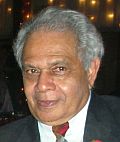
Adolfo C. Mascarenhas
Local & Indigenous Knowledge Systems, Commission of Science and Technology, Dar es Salaam, Tanzania
Adolfo Mascarenhas, has been a Professor at the University of Dar es Salaam and has worked at the local, national, regional and international level. His main interest are in environment, knowledge and development. He has served as a Chairman of several national institutions, including the National Scientific Research Council, the Ngorongoro Conservation Area Authority, the Tanzania Forest Research Institute. Has been advisor to the Rector of the UNU, the DG of UNEP, drafted the water and sanitation programme for WHO/UNICEF. He was the founder Director of IUCN when they opened the Regional Office for Southern Africa. He returned to the University of Dar es Salaam to his base at the Institute of Resource Assessment and served as Director of Post graduate studies.

Ricardo Monteiro
Deputy Director UME Graduate School and Assistant Professor, Institute for Advanced Study of Pavia (IUSS), Pavia, Italy
Ricardo Monteiro is Assistant Professor at the Institute for Advanced Study of Pavia (IUSS), Italy and affiliated researcher at the European Centre for Training and Research in Earthquake Engineering (EUCENTRE) in Pavia, Italy and at the Institute for R&D in Structures and Construction (CONSTRUCT) at the University of Porto, Portugal. He received his European Ph.D. (2011, Portugal and Italy) degree in civil engineering from the University of Porto after obtaining his 5-year bachelor’s degree in civil engineering also at the University of Porto in 2005. After a one-year period as graduate researcher at the Department of Civil Engineering and Architecture at the University of Pavia, he joined the Understanding and Managing Extremes (UME) School at IUSS Pavia in 2011. Since 2013 he serves as the Deputy Director of the UME Graduate School (formerly ROSE School), where he coordinates three MSc programmes and a PhD programme with four curricula, in the field of natural hazard and human-induced risk, including the organization of courses in seismic assessment of building non-structural elements. His research over the last 10 years has focused mostly on nonlinear methods for the seismic analysis of RC bridges and, more recently, in integrated seismic risk assessment and loss estimation. He is currently coordinating or co-coordinating 5 national and European research projects in Italy and Portugal (total budget over 2M€), which include non-structural components assessment tasks. His scientific achievements are presented in over 40 publications in peer-reviewed journal and conference proceedings.
Virginia Murray
FFPH, FRCP, FRCPath, FFOM Public Health Consultant in Global Disaster Risk Reduction for Public Health England, London UK
Virginia was appointed as Consultant in Global Disaster Risk Reduction for Public Health England in April 2014. This appointment is to take forward her work as vice-chair of the UN International Strategy for Disaster Reduction (ISDR) Scientific and Technical Advisory Group. Now that the Sendai Framework for Disaster Risk Reduction 2015-2030 has been endorsed, she was appointed as the Chair of the Organising Committee for the UNISDR Science and Technology Conference on the implementation of the Sendai Framework for Disaster Risk Reduction 2015-2030. Qualified in medicine, she joined Guy and St Thomas’s Hospital Poisons Unit in 1980 and in 1986 was appointed consultant medical toxicologist. In 1989 she started the Chemical Incident Research Programme and was Director of Chemical Incident Response Service from 1995. From April 2003 she worked for the Centre for Radiation, Chemicals and Environmental Hazards (CRCE) (part of Public Health England - formerly the Health Protection Agency). She has considerable experience in advising on toxicological and environmental public health aspects of response to acute and chronic chemical incidents. In 2011 she was appointed as Head of Extreme Events and Health Protection, Public Health England, she developed evidence base information and advice on Heatwaves, Cold Weather and flooding to prepare for, respond to and recover from natural disasters in England . She was a coordinating Lead Author for chapter 9 Case Studies for the Intergovernmental Panel on Climate Change Special Report on Managing the Risks of Extreme Events and Disasters to Advance Climate Change Adaptation, published in May 2012. Appointed as Visiting Professor in Health Protection, MRC-PHE Centre for Environment and Health, Imperial College and King’s College, London (2004) and Honorary Professor at University College London (2013), she has published widely.

Yuichi Ono
Professor, International and Regional Cooperation Office Disaster Information Management and Public Collaboration Division International Research Institute of Disaster Science (IRIDeS), Tohoku University, Sandai, Japan
Yuichi completed his bachelor’s and master’s degrees from Utsunomiya University. He received a Ph.D. in Geography at Kent State University in 2001. He conducted research on tornado disaster risk reduction in the U.S.A., Japan, and Bangladesh. During 2002-03, he worked for the World Meteorological Organization and contributed to developing the disaster risk reduction programme and emergency response mechanism when hydrometeorological disasters occur in the WMO’s member countries. During 2003-09, he worked for the United Nations International Strategy for Disaster Reduction. He contributed to organize the World Conference on Disaster Reduction in Kobe, Japan in 2005. He assisted developing the International Early Warning Programme and helped manage the ISDR Scientific and Technical Committee as well. Following the Sumatra Tsunami in 2004, he helped develop the Indian Ocean Tsunami Early Warning System. During 2009-12, he worked for the United Nations Economic and Social Commission for Asia and Pacific (ESCAP in Bangkok) as Chief of the Disaster Risk Reduction Section, providing a regional platform for cooperation and policy-making for disaster risk reduction, with particular attention to developing countries and vulnerable social groups. ESCAP has an intergovernmental process in disaster risk reduction with its 62 member countries. He proposed to develop disaster statistics in the Asia and Pacific region based on official sources. In November, 2012, he became a professor of the International Research Institute of Disaster Science (IRIDeS), Tohoku University, located in Sendai, Japan. His main role is to promote scientific and technical research outcomes of the IRIDeS and bring them to international policy making processes. He currently acts as a chair of the Multi-Hazard Program of the Association of Pacific Rim Universities.
Stefan Pickl
Chair for Operations Research Management Safety & Security AllianceCOMTESSA Computer Science Faculty, Core Competence Center C3 for Operations Research, Universität der Bundeswehr, Munich, Germany
Professor Stefan Pickl studied mathematics, electrical engineering, and philosophy at TU Darmstadt and EPFL Lausanne 1987-93. Dipl.-Ing. ’93, Doctorate 1998 with award. Assistant Professor at Cologne University (Dr. habil. 2005; venia legendi "Mathematics"). Visiting Professor at University of New Mexico (U.S.A.), University Graz (Austria), Universiti Brunei, University of California at Berkeley, Naval Postgraduate School NPS Monterey (U.S.A.). Visiting scientist at SANDIA, Los Alamos National Lab, Santa Fe Institute for Complex Systems and MIT. Associated with Centre for the Advanced Study of Algorithms CASA (U.S.A.), Center for Network Innovation and Experimentation CENETIX. Foundation and Director of COMTESSA (Core Competence Center C3 for Operations Research, Management Safety & Security Alliance), member of MUNICH AEROSPACE, HOLM (House of Logistics and Mobility) and research branch “Humanitarian Logistics”/ “Integrative Risk Assessment Future ICT”.

Simone Quatrini
Head LDN Fund, UN Convention to Combat Desertification, Bonn, Germany
Simone Quatrini currently leads the development of the LDN Fund for the UN Convention to Combat Desertification in collaboration with Mirova, the responsible investment subsidiary of Natixis. Before that, he coordinated the Private Sector Resource Mobilization, Policy/Investment Analysis and Innovative Finance Programmes at the UN Global Mechanism. Between 1999 and 2008, he was Information Systems Manager and Financial Analyst at the International Fund for Agricultural Development (IFAD) in Rome. Before joining the UN, he served as liaison officer for the banking industry to the European Commission and worked for four years as marketing and account manager at IBM in Brussels.

Saifur Rahman
Director, Virginia Tech Advanced Research Institute, Blacksburg, USA
Professor Saifur Rahman is the founding director of the Advanced Research Institute (www.ari.vt.edu) at Virginia Tech where he is the Joseph R. Loring professor of electrical and computer engineering. He is a Life Fellow of the IEEE and an IEEE Millennium Medal winner. He is the president-elect of the IEEE Power and Energy Society (PES) for 2016 and 2017. He was the founding editor-in-chief of the IEEE Electrification Magazine and the IEEE Transactions on Sustainable Energy.
Ortwin Renn
Scientific Director, Institute for Advanced Sustainability Studies, Potsdam, Germany
Professor Renn is a Scientific Director at the Institute for Advanced Sustainability Studies (IASS) in Potsdam (Germany). He remains affiliated to his former institute, the Stuttgart Research Center for Interdisciplinary Risk and Innovation Studies at the University of Stuttgart (ZIRIUS), and continues to direct, together with Dr Marion Dreyer and Agnes Lampke, the non-profit company DIALOGIK, a research institute for the investigation of communication and participation processes. Renn is Adjunct Professor for Integrated Risk Analysis at Stavanger University (Norway) and Affiliate Professor for Risk Governance at Beijing Normal University.
His career included teaching and research positions at the Juelich Nuclear Research Center, Clark University (Worcester, USA), the Swiss Institute of Technology (Zuerich) and the Center of Technology Assessment (Stuttgart). Among others he is a member of the Scientific Advisory Board of EU President Barroso, the Scientific and Technical Council of the International Risk Governance Council (IRGC) in Lausanne, the National Academy of Disaster Reduction and Emergency Management of the People’s Republic of China and several national and international Academies of Science. In the past he served on the panel on “Public Participation in Environmental Assessment and Decision Making” of the U.S.-National Academy of Sciences in Washington, D.C. (from 2005-2007) and on the German Federal Government’s “Commission on Energy Ethics” (2011). In 2012 he was elected president of the Society for Risk Analysis (SRA).
Alejandro Linayo Rivero
President, Disaster Risk Management Research Centre, Merida, Venezuela
Systems engineer with specialization in stochastic and operational research; master degree in organizational theory and PhD studies in educational and social sciences. Started to work in disaster response operations in 1985 and in 1997 began to work as researcher and professor (post-degree) on DRR programs. Since 2007 is president of the Research Centre on Disaster Risk Reduction CIGIR and member of the Directive Board of the Latin American Network of Social Studies on Disaster Prevention LARED.
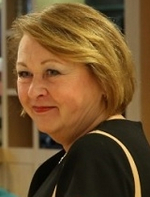
Magda Rooze
Senior advisor, Arq Psychotrauma Expert Group, The Netherlands
Magda Rooze, MA in Psychology and MBA in Business Administration is senior advisor of Arq Psychotrauma Expert Group in The Netherlands and she was the director/corporate executive of the Impact Foundation, Dutch Knowledge & Advice Centre for Post-Disaster Psychosocial Care, which she founded in 2002. Under her management, the organisation developed a strong vision of post-disaster psychosocial care, a professional online database with relevant scientific publications, public information and experts in the field of psychosocial care. She opened up the network at the local, European and international levels. Magda was responsible for achieving several important guidelines for the field that are now used as standard practice. Many practical products were also developed under her management. Magda was able to acquire a large number of national and European projects for the knowledge centre. She strongly promotes international cooperation. She is the convenor of the Standing Committee on Crisis and Disaster Psychology of the European Federation of Psychologists Associations. Since 2012 she is the projectleader of the European project TERRA Terrorism and Radicalisation a European network based prevention and learning program. The aim of the project is to enhance knowledge and awareness on ‘The staircase to terrorism’. What are the psychological and social factors that contribute to this process. And what are the effective interventions to stop this process. A practical instrument has been developed to support those who professionally come into contact with young people at risk of radicalising, the TERRA Toolkit see www.terratoolkit.eu

Charles Scawthorn
Visiting Researcher, UC Berkeley’s Pacific Earthquake Engineering Research Center (PEER), Berkeley, USA
Charles Scawthorn is internationally recognized as an authority for the analysis and mitigation of natural and technological hazards. He retired in 2008 as Professor and head of the Earthquake Disaster Prevention Systems Laboratory, Kyoto University (Japan), is currently Visiting Professor at Waseda University (Tokyo) and Visiting Researcher, Univ. California at Berkeley. He teaches a course on Disaster Risk Assessment, Mitigation and Financing at the World Bank, and chairs the HAZUS Open Source Committee, is a member of the Multihazard Mitigation Council. As President of SPA Risk LLC, he consults to the global insurance industry, the World Bank, local/state/federal agencies and Global 1000 corporations. From 1998 to 2003 he led technical development of the US national Flood Loss Estimation Model (HAZUS) for FEMA, and is widely recognized for the development of methods for rapid risk analysis of buildings (FEMA 154), seismic vulnerability assessment of US national infrastructure (FEMA 224), stochastic models of fires following earthquakes, models for optimizing urban land use with respect to natural hazards risk, general loss estimation models for earthquake, wind and flood, and seismically reinforcing low-strength masonry buildings. He is the author or co-editor of a number of books and technical papers on earthquake engineering, fire following earthquake, catastrophe risk and human casualties. Dr. Scawthorn is a graduate of the Cooper Union, holds an M.S.C.E. degree from Lehigh University and received his D.Eng. from Kyoto University.

Jürg Schweizer
Head, WSL Institute for Snow and Avalanche Research SLF, Davos, Switzerland
After graduating in environmental physics and completing a PhD in glaciology Jürg Schweizer joined the Swiss Federal Institute for Snow and Avalanche Research SLF in 1990 – located at those times high up on the Weissfluhjoch. He still has fond memories of his one-year research stay in Canada (1995-1996). In the last 20 years he has made significant research contributions in snow mechanics, avalanche formation and forecasting, was responsible for the SLF’s educational courses for avalanche professionals, investigated numerous avalanche accidents and has been an expert witness in many court cases. Since 2011 he leads the research unit Snow Avalanche and Prevention, is the Head of SLF and a member of the Directorate of Federal Research Institute WSL in Birmensdorf. Jürg Schweizer lectures at ETH Zurich and since 2013 is the President of the Cryospheric Sciences Division of European Geosciences Union (EGU).
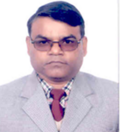
Daya Shanker
Assistant Professor of Engineering Seismology in the Department of Earthquake Engineering, Indian Institute of Technology Roorkee, India.
Dr. D. Shanker is presently an Assistant Professor of Engineering Seismology in the Department of Earthquake Engineering, Indian Institute of Technology Roorkee, India. After serving for more than 10 years in different institutions as Lecturer as well as Research Associate, he joined the University of Roorkee (presently IIT Roorkee) in year 1996. He has so far supervised Three PhD thesis and Six M.Tech Dissertations and Two under supervison. His research publications numbering more than 171 in International and National Journal of their repute as well as Conferences, have covered various field of earthquake seismology, seismic hazard and risk assessment, earthquake prediction, seismic microzonation and landslide hazard zonation, geophysical and geochemical earthquake precursor search for long term-prediction and statistical seismology & earthquake engineering and Tsunami damage investigations and having more than 231 scientific citations. As an active consultant and researcher, he has made a great contribution in teaching to PG and UG Science and engineering students. Having, more than two decades of research and teaching experience, he has served as scientific reviewer of several dozens of international and national research Journals and editor International Journal “Geosciences”, “Frontiers in Geosciences” and Earthquake science and Engineering. He has participated various international and national training program and meetings. He has also completed several research projects and consultancies. Dr. Shanker is a member of several national and international committees and life member of different scientific societies and has travelled widely to deliver invited and technical talks and chair scientific session in international seminars and conferences. Very recently, he has been awarded member of Euro Science following ESOF2014 till July 2015. Besides academics, he has been made a excellent contribution in extracurricular activities and administrative skill as well, like Ex-Staff Adviser Rowing Game, IIT Roorkee, Ex-Associate Manager and Ex-Treasurer of the Adarsh Bal Niketal (ABN) Senior Secondary School, IIT Roorkee and presently, Faculty Search Committee Member Department of Earth Sciences, IIT Rooekee. He has visited more than 30 countries and some of them several times on mission to imbibe technological know-how and utilized them in the scientific programme in India.
Shital Hardik Shukla
Associate Professor, Department of Geography, Faculty of Science, The Maharaja Sayajirao University of Baroda, Vadodara, India
Shital Hardik Shukla is an Associate Professor at the Department of Geography, Faculty of Science, The Maharaja Sayajirao University of Baroda, Vadodara, India. Her areas of research work include vulnerability assessment towards climate change and disasters, sustainable development and environmental planning, urban and regional planning, research methodology for social science, and natural resource management. She has published two books and various reports and papers in reputed journals.
Jishnu Subedi
Southern Alberta Institute of Technology, Calgary, Canada
Jishnu Subedi, Ph.D. in Civil Engineering and MBA, is currently teaching at Southern Alberta Institute of Technology, Canada. He is also founding General Secretary of Center of Resilient Development (CoRD). Before that he served as Coordinator, Master of Science in Structural Engineering, at Institute of Engineering, Tribhuvan University. Before joining the institute in 2009, he worked as Researcher in the Disaster Management and Planning Unit of United Nations Centre for Regional Development. He also served as Vice-Principal (2006-2007) and Coordinator for Masters in Disaster Risk Management (2004-2007) at Nepal Engineering College. His main areas of work include urban disaster risk management, climate change and earthquake risk mitigation. He has co-authored a book on Disasters and Development: Investing in Sustainable Development of Nepal and has published numerous papers in disaster management and earthquake risk management.

Helen T. Sullivan
PhD, Department of Psychology Rider University, Lawrenceville, New Jersey, USA
Helen Sullivan is a cognitive psychologist whose research seeks to understand the fundamental role that human perception and learning play in risk communication and preparedness. Dr Sullivan is particularly interested in the use of mobile technologies as a platform for risk reduction including the innovative use of mobile games to train preparedness behaviors. Her research interests have spanned the use of mobile phones for emergency notification, the perceptual characteristics of warning signs, the usability of electronic voting systems by people with disabilities, and learning models. Dr Sullivan is an adjunct professor in Psychology at Rider University and a senior researcher on the EU FP7 project Public Empowerment Policies for Crisis Management (PEP). She has presented her work in journals, at conferences and in workshops in the USA, Europe, China, and Japan. Dr. Sullivan is a member of the American Psychological Association and Sigma Xi. She is on the Science and Technology Advisory Committee of the Global Risk Forum Davos, and on the editorial board of the journal Planet@Risk. Dr. Sullivan received her Master of Science and PhD in experimental psychology from Saint Louis University.
Thomas Usländer
Head, Department Information Management and Production Control (ILT), Fraunhofer IOSB, Karlsruhe, Germany
Thomas Usländer holds a degree in Computer Science from the University of Karlsruhe, Germany, and a PhD in Engineering of the Karlsruhe Institute of Technology (KIT), Germany. He is head of the department “Information Management and Production Control (ILT)” and deputy speaker of the business unit “Energy, Water and Environment” at Fraunhofer IOSB. His research interests include the analysis and design of open geospatial service architectures and reference models for the Internet of Things and Services where he has numerous publications.
Eric Veulliet
CEO, alpS - Centre for Climate Change Adaptation Technologies, Innsbruck, Austria
Dr. Eric Veulliet leads the alpS - Centre since more than nine years. "alpS research" investigates how global climate change affects regional and local human-environment systems. Climate and socio-economic scenarios provide the basis for assessment and evaluation of possible future developments in mountain regions. "alpS development" focuses on innovative, marketable technologies and strategies for a sustainable adaptation to climate change. These include innovations for early warning and monitoring systems for the prevention of natural disasters, tools for modern risk management as well as concepts for adapted land-use, water resource and forestry management. "alpS consult" supports decision makers, institutions and businesses on the basis of its scientific expertise. Risk management for municipalities and businesses or regional energy development strategies serve as two successful examples. alpS minimises negative risks of climate change and reaps its economic opportunities.

Chadia Wannous
Senior Advisor, UN Office for Disaster Risk Reduction (UNISDR), Geneva, Switzerland
Chadia Wannous is a public health professional with more than twenty years of work experience in program management, research, and coordination, with particular focus on emergency preparedness and response.Chadia is a currently working as a Senior Advisor at the UN Office for Disaster Risk Reduction (UNISDR) mobilizing the health partnerships for the implementation of the Sendai Framework for Disaster Risk Reduction, and also serves at the UNISDR Science and Technology Secretariat.Prior to her current position, Chadia served as a Senior Policy Advisor to the UN Secretary General Special Envoy on Ebola and the UN System Influenza Coordination.Chadia worked since 2005 on emergency preparedness particularly on pandemics preparedness and response, strategic planning and strengthening of partnerships and alliances to optimize the UN System links to global initiatives and efforts.In 2008-2011 Chadia worked as a as a Senior Advisor for the UN Resident Coordinator in Egypt, and as a Regional Coordinator for the UN System Influenza Coordination (UNSIC) in the Middle East and North Africa region. During 2005-2007 Chadia worked as a Technical Officer at the World Health Organization (WHO) in Jamaica, the Regional Communicable Disease Surveillance and Response sub-unit in Thailand, and in the Maldives country office.
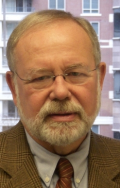
Dennis Wenger
Chair of the UNISDR Scientific and Technical Advisory Group, National Science Foundation (NSF) ret., Arlington, USA
Dennis Wenger was the Program Director for program element 1638, Infrastructure Systems Management and Extreme Events, at the National Science Foundation (NSF). He was also the Acting Program Director for the Civil Infrastructure Systems program. He had previously been at NSF from 2001-2005. Dr. Wenger was a Professor from Texas A&M University from 1989-2007. At Texas A&M, Dr. Wenger was a Professor of Urban and Regional Science and an Adjunct Professor of Sociology. He was also the Founding Director and Senior Scholar of the Hazard Reduction & Recovery Center. Prior to his arrival at Texas A&M in 1989, Dr. Wenger was on the faculty of the University of Delaware where he served as Co-Director of the Disaster Research Center from 1984-1989 Dr. Wenger has been engaged in research on hazards and disasters for over 40 years. His research has focused upon the social and multidisciplinary aspects of natural, technological, and human-induced disasters. Specifically, he has studied such topics as local emergency management capabilities and response, police and fire planning and response to disasters, search and rescue and the delivery of emergency medical services, mass media coverage of disasters, warning systems and public response, factors related to local community recovery success, and disaster beliefs and emergency planning. He undertook the only empirical study of the evacuation of the World Trade Center towers after the first terrorist attack in 1993 and served as the principal investigator for the first project to Enable the Future Generation of Hazard Researchers. He is the author of numerous books, research monographs, articles and papers. Dr. Wenger served as one of the nine members of the United Nations Scientific and Technical Committee to the International Strategy for Disaster Reduction. At NSF Dr. Wenger served as the foundation s representative to the Roundtable on Disasters of the National Academy of Science. He also represented NSF on the Subcommittee on Disasters (SDR) which is associated with the Office of Science and Technology Policy. Dr. Wenger served as the Co-Chair for Science of the SDR.

Ashvin Wickramasooriya
Senior Lecturer in Geology, Department of Geography, University of Peradeniya, Sri Lanka
Mr. Ashvin Wickramasooriya is a Senior Lecturer in Geology of the University of Peradeniya, Sri Lanka. His research interests cover GIS applications for disaster management, hydrological and climatological impact on environment, and hydrogeochemistry. He was the Secretary of the Geological Society of Sri Lanka in 2009 and served as the joint Secretary (2007-2009) and a member of the Editorial Board (2005/06 and 2009/10) of the Geoinformatics Society of Sri Lanka. Mr. Wickramasooriya is the Chairman of the Sri Lanka Earth Science Olympiad committee from 2009 - 2012. Apart from his contributions to his own country, he has been engaging with many international level activities specially to promote Earth Science. He is a council member of the International Geoscience Education Organization, International Union of Geological Sciences Commission of Geoscience Education, Training and Technology Transfer (IUGS-COGE), Association of Geoscientists for International Development (AGID). Further, he is the Coordinator for the Sri Lankan National Committee of International Year of Planet Earth (IYPE).

Mehdi Zare
Associate Professor of Engineering Seismology and Director of National Center for Earthquake Prediction, International Institute of Earthquake Engineering and Seismology (IIEES), Theran, Iran
Dr. Mehdi Zare is Associate Professor of Engineering Seismology and Director of the National Center for Earthquake Prediction at the International Institute of Earthquake Engineering and Seismology (IIEES) in Theran, Iran. His research focuses on seismotectonic modeling for seismic zonation, seismic hazard analysis, strong motion studies, attenuation laws, and modeling using the Green's function. He has an extensive track record on seismic risk reduction and mitigation both in Iran and the region. Dr. Zare is author of various books and papers on seismology with a special focus on seismic hazard and risk analysis in Iran. Dr. Mehdi Zare received his is doctorate in Engineering Seismology from the Grenoble University in France in 1998.

Christopher W. Zobel
Professor of Business Information Technology, Virginia Tech, USA, and member of the ISCRAM Board of Directors, Blacksburg, USA
Christopher Zobel is the R.B. Pamplin Professor of Business Information Technology in the Pamplin College of Business at Virginia Tech. He is a Co-Director of Virginia Tech's Interdisciplinary Graduate Education Program in Disaster Resilience, and a member of the Board of Directors for the International Association for the Study of Information Systems for Crisis Response and Management (ISCRAM). His training is in mathematics and systems engineering and his research interests are in disaster operations management and environmentally-focused decision making. Within these areas, his focus is on the multi-dimensional nature of decision making, and in opportunities for better quantifying the resilience of individual systems and the networks of which they are a part - particularly in a humanitarian supply chain context, and with full consideration of the social and economic aspects of resilient behaviors.


